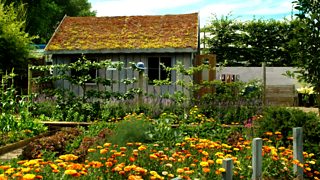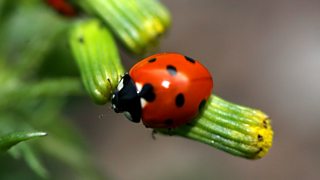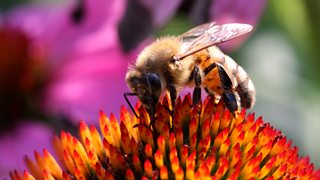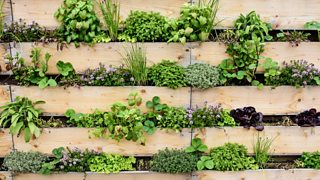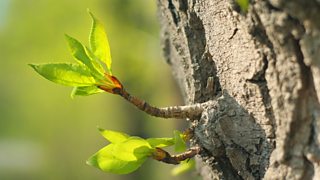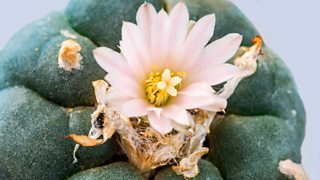Nine gardening myths debunked
When your lawn turns brown do you need to water it? Does talking to your plants help them to grow? And do leaves really get sunburnt?
We have separated the wheat from the chaff and identified some classic horticultural hogwash so you don’t have to. Here are nine pesky gardening myths well and truly debunked.
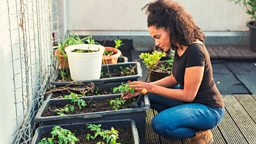
1. Saplings need to be staked
Wrong! We’re taught to secure a sapling to a stake in the ground to support the young tree and keep it upright. But this might actually do more harm than good. Research has shown that trees without support will develop thicker trunks, more supportive roots and more resistance to breakages – because they aren’t reliant on a pole. Here’s the science bit: the buffeting from the wind makes the tree release ethylene gas, which then triggers the formation of wood-strengthening lignin – a process called “thigmomorphogenesis”. That’s one to impress the neighbours with.
-
![]()
Gardeners' Question Time
Horticultural programme featuring a group of gardening experts
-
![]()
A Guide to Garden Wildlife
Brett Westwood and Phil Gates present a guide to some of Britain's common garden wildlife.
2. Watering plants on a hot day will magnify the sun and burn the leaves
Nope, leaves can’t get sunburn. The idea that water would act like a magnifying glass and scold a plant is simply not true. However, watering thirsty plants early in the morning or after the sun has gone down is generally a more efficient strategy, because less water will evaporate off.
3. Putting gravel in the bottom of a pot helps it to drain
It’s generally accepted advice that popping gravel, stones or broken crock at the bottom of a pot will help it to drain and prevent waterlogged plants. In fact, the water will just sit in the soil above the stones and your plant’s roots will have less space in which to grow. If you want better drainage, blend stones or sand into the actual soil.
How green is grass?
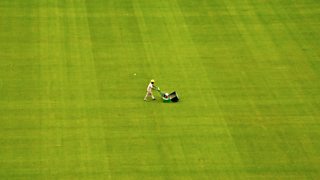
Can a garden product can really make your grass six times greener? Tim Harford finds out.
4. A brown lawn is a dead lawn
During the summer, there aren’t going to be too many green patches of grass around. But you’ll be pleased to hear that brown grass does not necessarily mean that your lawn is dead - it is probably just dormant. Dormancy occurs when grass is exposed to intense heat and deprived of water – and although it may look lifeless, there will be a “crown” inside each dry stalk that is still alive. Most lawns can tolerate drought for four to six weeks.
Most lawns can tolerate drought for four to six weeks. When grass is exposed to intense heat and deprived of water the grass goes dormant.
5. You should add sand to heavy clay soil
Nope! Do this and you risk creating a substance that is more like concrete than earth. If you want to make clay soil easier to dig, you should turn some organic matter into it – like compost, sphagnum moss, manure, or grass cuttings. This will help water and roots penetrate the soil and will add crucial nutrients too.
6. Sealing pruned branches will keep out disease
Incorrect! We’re told that after pruning a tree’s branch, we should seal the “wound” with tar, paint, or shellac to stop disease, decay or insect infestations. But trees have their own self-healing technique and will grow a callus at the site of the cut to keep pathogens at bay. Our paints can actually prevent these calluses or scabs from forming. We’ve been barking up the wrong tree!
7. Adding sugar to the soil makes tomatoes sweeter
Afraid not. How much sugar is in the soil will have absolutely no bearing on how sweet a plant’s tomatoes will be. Sweetness is all down to the plant’s genetics and how much sun it gets. If you’re partial to a saccharine tomato simply seek out a sweet variety. Save your sugar and make a nice Victoria sponge instead.
8. You should plant potatoes on Good Friday
When you consider the date for Easter moves each year - by up to a month - you realise this one makes no sense at all. Rumour has it that 16th Century Irish Catholics were suspicious of potato plants, which were brought over from the Andes, but eased their concerns by dousing them with Holy Water and sticking them in the ground on Good Friday. In truth, it’s best to get potatoes in the soil once spring has definitely sprung, and not before, to prevent frost damage.
9. Talking to your plants will help them grow
Actually, as whacky as it sounds, there could be some truth in this. When we sing or talk we emit carbon dioxide – and plants need this to grow. You could simply breathe on them of course, but that wouldn’t be as fun as belting out Build Me Up Buttercup with a hoe as a makeshift microphone.

Why an online gardening bargain might not be all it seems
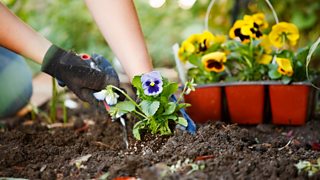
Sometimes low prices come with a risk. Peter White finds out why.
-
![]()
Charming facts about your favourite industrious invertebrate.
-
![]()
Why gardening on social media is not all it seems
There is a wide gulf between real gardens and those portrayed on social media.
-
![]()
Is a new age of wood about to dawn?
-
![]()
Enter the world of sacred plants, rich in spiritual symbolism.
